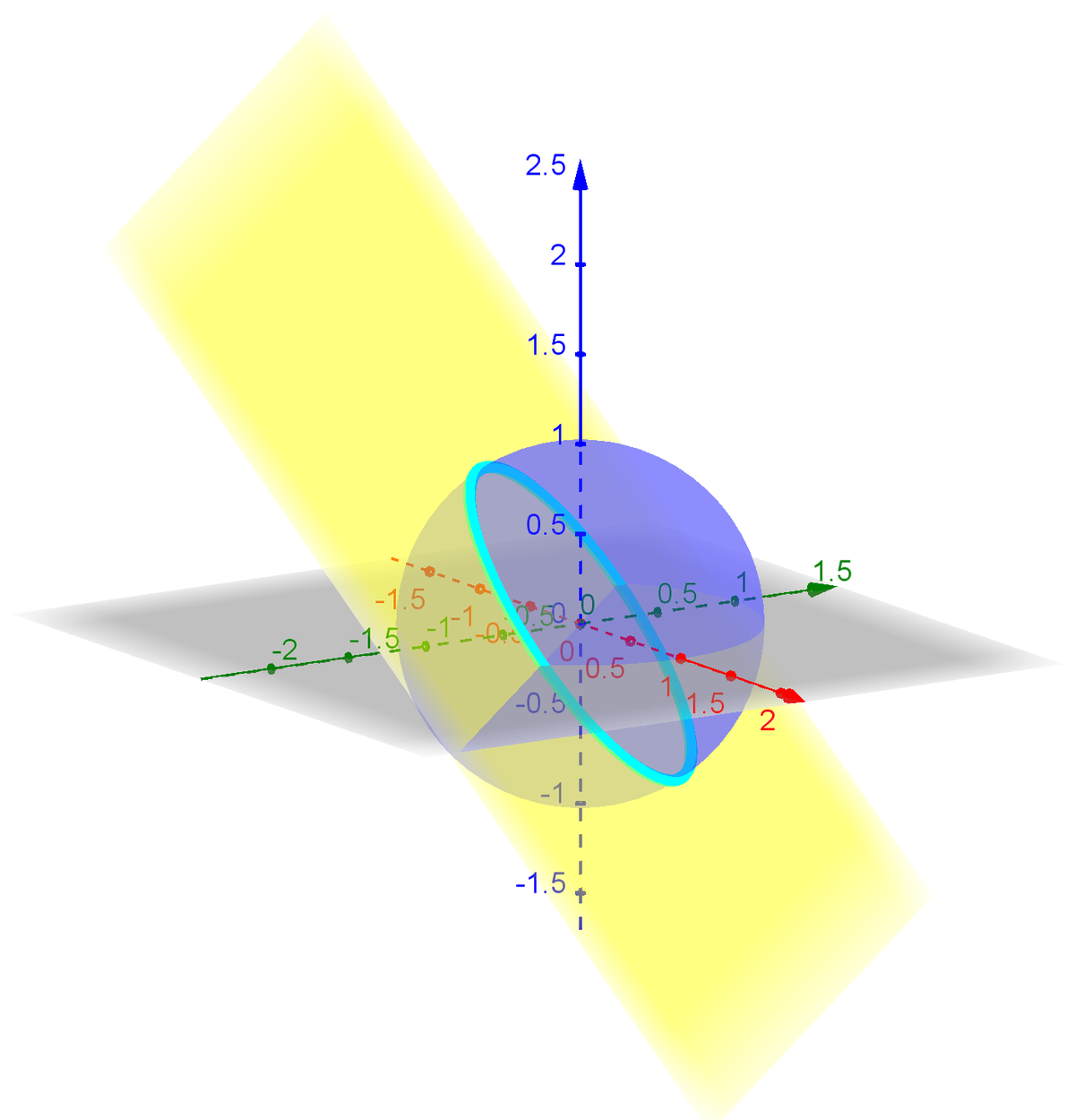Multivalued!
Given real numbers a , b , c constrained by a 2 + b 2 + c 2 = 1 , the minimum of a b + b c + c a is attained for
This section requires Javascript.
You are seeing this because something didn't load right. We suggest you, (a) try
refreshing the page, (b) enabling javascript if it is disabled on your browser and,
finally, (c)
loading the
non-javascript version of this page
. We're sorry about the hassle.
2 solutions
Starting from the identity
(
a
+
b
+
c
)
2
=
a
2
+
b
2
+
c
2
+
2
a
b
+
2
b
c
+
2
c
a
, we get
(
a
+
b
+
c
)
2
=
1
+
2
a
b
+
2
b
c
+
2
c
a
⇒
a
b
+
b
c
+
c
a
=
2
(
a
+
b
+
c
)
2
−
1
.
The expression
2
(
a
+
b
+
c
)
2
−
1
gets minimised when
(
a
+
b
+
c
)
2
does so, that is when
a
+
b
+
c
=
0
.
There are infinitely many triples of real numbers to satisfy this.
In fact, due to the restriction given, a solution is any triple that corresponds to the coordinates of a point that belongs to the circle which is the intersection of the plane
z
+
y
+
z
=
0
ant the sphere
x
2
+
y
2
+
z
2
=
1
.

The set of all these triples is S = { ( − 2 1 cos t + 6 1 sin t , 2 1 cos t + 6 1 sin t , − 3 2 sin t ) , t ∈ [ 0 , 2 π ) } .
In a different perspective, the solutions may be written as { ( k , 2 1 ( 2 − 3 k 2 − k ) , 2 1 ( − 2 − 3 k 2 − k ) ) , k ∈ [ − 3 2 , 3 2 ] } .
For some concrete examples, all 6 permutations of ( 0 , 2 1 , − 2 1 ) are solutions.
Hence, the answer is More than four sets of values of a, b, c .
No restriction on the values of a , b and c ? I mean, can any triple satisfying a + b + c = 0 will minimize a b + b c + c a ? In which range a , b , c should lie?
You are right. Not any triple will do. I'll add some more on this in my solution.
a 2 + b 2 + c 2 + 2 ( a b + b c + c a ) = ( a + b + c ) 2 a b + b c + c a = − 2 1 ( a 2 + b 2 + c 2 ) + 2 1 ( a + b + c ) 2 a b + b c + c a = − 2 1 + 2 1 ( a + b + c ) 2
Therefore, to minimize a b + b c + c a , we need to minimize ( a + b + c ) 2 . ( a + b + c ) 2 ≥ 0 ∴ m i n ( ( a + b + c ) 2 ) = 0 ⟹ a + b + c = 0
We have the following set of equations now. a + b + c = 0 ⟹ c = − a − b a 2 + b 2 + c 2 = 1 a 2 + b 2 + ( − a − b ) 2 = 1 b 2 + a b + a 2 − 2 1 = 0 b = 2 − a ± 2 − 3 a 2
Also, c = − a − b c = 2 − a ∓ 2 − 3 a 2
Hence, we get the triple as, ( a , 2 − a ± 2 − 3 a 2 , 2 − a ∓ 2 − 3 a 2 )
As ( a , b , c ) should be a triple of real numbers, 2 − 3 a 2 ≥ 0 ⟹ − 3 2 ≤ a ≤ 3 2
Notice, we solved for the triple ( a , b , c ) with respect to a . We could have solved the system with respect to b or c too. Hence, from the symmetry argument: − 3 2 ≤ a , b , c ≤ 3 2
Finally, as we can see from the expression of the triple, we can choose any arbitrary a from the range [ − 3 2 , 3 2 ] , and we would get a triple of real numbers which satisfy our conditions. Therefore, we have infinite sets of values.